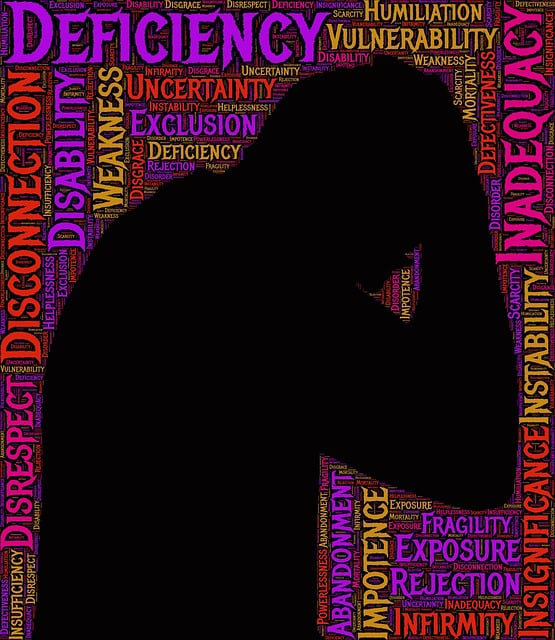In a fast-paced world, mental wellness is paramount, especially for children. Traditional therapy often fails to meet their unique needs, making innovative self-assessment tools crucial. These tools empower kids to manage emotional well-being through self-awareness and coping skills development. Gender-affirming care therapy is an emerging approach, creating safe spaces for children to explore identities and navigate challenges. Incorporating culturally sensitive practices ensures accurate risk assessments and tailored interventions like gender-specific therapies. Digital mental health tools require user-friendly interfaces, robust data security, and adaptable platforms for diverse access. Continuous improvement mechanisms through feedback and evaluation are vital for these tools' effectiveness, fostering burnout prevention and trauma support.
Mental wellness self-assessment tools play a crucial role in facilitating personalized care. In today’s digital era, these tools are more accessible than ever, offering individuals, especially children, an opportunity to proactively engage with their mental health. This article explores the development of such tools, focusing on therapy for children with a specific emphasis on gender-affirming care and culturally sensitive practices. By integrating technical considerations and robust evaluation mechanisms, we can create effective digital mental health solutions.
- Understanding the Need for Self-Assessment Tools in Mental Wellness
- Designing Therapy for Children: A Gender-Affirming Approach
- Incorporating Culturally Sensitive Practices in Self-Assessment
- Technical Considerations for Developing Digital Mental Health Tools
- Evaluation and Feedback Mechanisms for Continuous Improvement
Understanding the Need for Self-Assessment Tools in Mental Wellness

In today’s fast-paced world, mental wellness is a paramount concern, especially for vulnerable populations like children. Traditional therapy methods often fall short in catering to the unique needs of young individuals, prompting the urgent need for innovative self-assessment tools. These tools are pivotal in empowering children to take ownership of their emotional well-being and navigate life’s challenges effectively. By providing accessible and child-friendly assessments, we can foster early intervention, ensuring that issues like anxiety, depression, or gender dyspurity receive adequate attention through tailored care, including therapy for children and gender-affirming practices.
Self-assessment tools play a dual role in mental wellness development. Firstly, they offer individuals a chance to introspect and understand their emotional states and thought patterns. This self-awareness is crucial for identifying triggers and developing coping skills, such as positive thinking and self-esteem improvement strategies. Secondly, these tools can serve as valuable indicators for mental health professionals, guiding them in personalizing treatment plans and facilitating more effective therapy sessions. Thus, the incorporation of self-assessment into mental wellness practices is a transformative step towards enhancing overall well-being, particularly when tailored to diverse populations’ specific requirements.
Designing Therapy for Children: A Gender-Affirming Approach

Designing therapy for children with a focus on gender-affirming care is an innovative approach that recognizes the unique needs and experiences of young individuals. This method prioritizes creating a safe and inclusive environment where children can explore their identities, fostering self-awareness exercises that promote mental wellness. By integrating gender-affirming practices into therapy, professionals can help children navigate their emotions and challenges, reducing potential burnout prevention risks associated with unconventional gender roles or societal expectations.
Mental wellness coaching programs development should consider these progressive techniques, ensuring that therapists are equipped to provide specialized care. This approach not only supports children’s mental health but also contributes to a more inclusive therapeutic landscape, catering to diverse populations. It encourages self-exploration and acceptance, which are fundamental aspects of healthy development, especially in the context of evolving gender identities.
Incorporating Culturally Sensitive Practices in Self-Assessment

Incorporating culturally sensitive practices into mental wellness self-assessment tools is essential in ensuring their effectiveness and accessibility across diverse communities. This involves understanding and addressing the unique psychological, social, and cultural factors that can influence an individual’s relationship with mental health services. For instance, when developing assessments for children, it’s crucial to consider the impact of gender-affirming care on their sense of self and overall well-being. Traditional assessment methods might not account for non-binary or transgender youth’s experiences, potentially leading to misdiagnosis or missed opportunities for support.
By integrating culturally sensitive practices, mental health professionals can reduce the stigma associated with mental illness, especially within marginalized communities. This approach facilitates a more accurate risk assessment and aids in tailoring interventions for better outcomes. For example, incorporating cultural references and language that resonate with the individual can make therapy for children more engaging and effective, ultimately promoting depression prevention strategies tailored to their specific needs and backgrounds.
Technical Considerations for Developing Digital Mental Health Tools

Developing digital mental health tools requires careful consideration of various technical aspects to ensure their effectiveness and accessibility. As more individuals, including children, seek therapy for mental wellness online, it becomes imperative to design user-friendly interfaces that cater to diverse needs. One crucial aspect is incorporating features that promote inclusivity, especially when targeting marginalized communities. For instance, creating tools that offer gender-affirming care can significantly impact LGBTQ+ youth’s mental health journey.
Technical developers should also focus on data security and privacy to build trust among users. With the sensitive nature of personal mental health information, implementing robust encryption methods and ensuring compliance with relevant regulations are essential. Furthermore, considering the potential challenges of outdated technology or limited access to digital resources, creating adaptable and accessible platforms is vital for reaching a broader audience. This includes providing options for different devices and internet connectivity levels, thereby fostering inner strength development and preventing burnout among those seeking mental health support, including healthcare providers themselves.
Evaluation and Feedback Mechanisms for Continuous Improvement

Effective mental wellness self-assessment tools should incorporate robust evaluation and feedback mechanisms to facilitate continuous improvement. These processes allow individuals to track their progress, identify areas of need, and make informed decisions regarding their mental health journey. For instance, incorporating therapy for children with gender-affirming care can provide unique insights into young individuals’ experiences, fostering a more nuanced understanding of their well-being. Regular feedback from healthcare professionals can help refine these tools, ensuring they remain effective in addressing contemporary challenges like burnout prevention and trauma support services.
Additionally, such mechanisms should promote self-esteem improvement by enabling users to recognize their strengths and accomplishments. By encouraging open reflection and constructive feedback, these assessment tools can empower individuals to take charge of their mental wellness proactively. This approach aligns with the broader goal of enhancing overall well-being, making it crucial for developers to prioritize these strategies in creating comprehensive and user-friendly self-assessment platforms.
The development of mental wellness self-assessment tools, with a focus on therapy for children and gender-affirming care, is a multifaceted process. By incorporating culturally sensitive practices and leveraging technical advancements in digital health tools, we can create accessible and effective resources. Continuous evaluation and feedback mechanisms are vital to ensure these tools meet the diverse needs of individuals seeking mental wellness support. This holistic approach not only enhances the user experience but also fosters a more inclusive and supportive environment for all, particularly when it comes to therapy for children and gender-affirming care.









